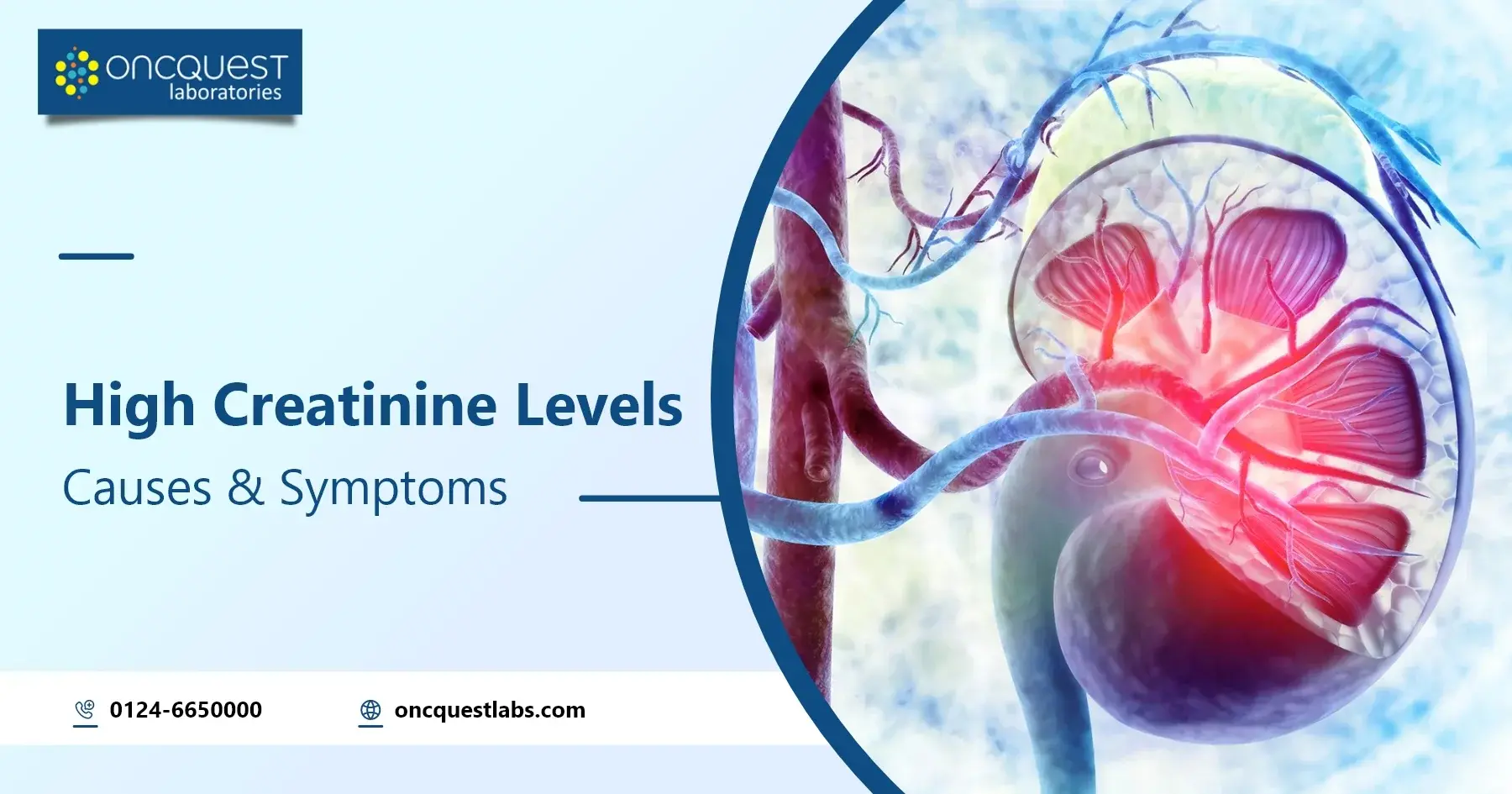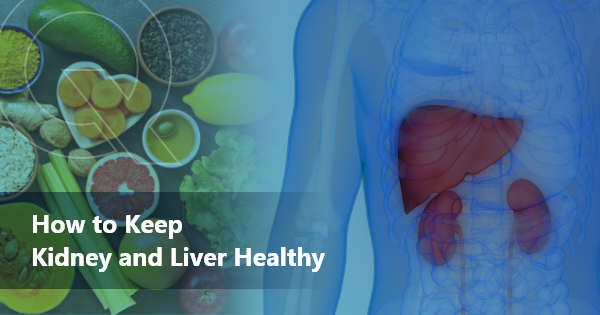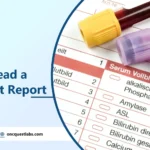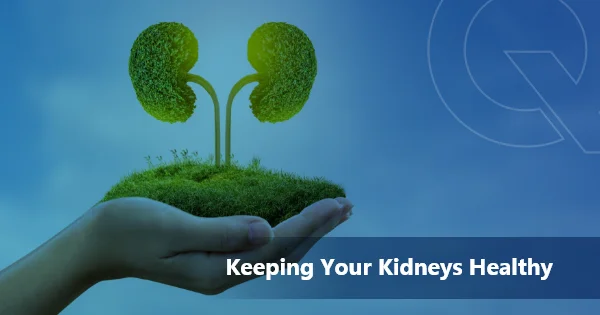If you recently received results from a complete body examination, you might be curious about what your elevated creatinine levels mean for your health and when to worry about creatinine levels. Elevated creatinine readings are typically indicative of two underlying conditions: either increased renal function or muscle issues. Typically, the kidneys remove creatinine from the blood as a waste product that the muscles make, and the urine is the result. Increases in creatinine typically indicate a high rate of muscle tissue degeneration or poor kidney function.
Contents
When to Worry about Creatinine Levels
One waste product that the muscles and the kidneys remove from the body is creatinine. It is essential to monitor creatinine levels since they aid in evaluating renal function and general health. But keeping your best health requires knowing when to worry about your creatinine levels. We will examine the variables that affect creatinine levels, the possible meanings of various levels, and when consulting a physician is required in this blog. Knowing your creatinine levels can help you make more educated decisions about your health, whether you’re taking care of a chronic illness or are just interested in your health markers.
Normal range of creatinine levels and variations by age
In healthy people, creatinine levels are usually constant and fall within a certain range. The typical range for men is approximately 0.6 to 1.3 mg/dL, and for women, it is 0.5 to 1.1 mg/dL. These ranges, however, may vary significantly between laboratories. Seeking medical advice is recommended in the event that your levels fall outside of this range.
| Age Range | Normal Creatinine Levels (mL/min/BSA) |
| 18 to 29 years | 78 to 161 |
| 30 to 39 years | 72 to 154 |
| 40 to 49 years | 67 to 146 |
| 50 to 59 years | 62 to 139 |
| 60 to 72 years | 56 to 131 |
Based on age, these figures indicate the usual range of creatinine levels. Comprehending these ranges is crucial for making accurate kidney health assessments and identifying possible problems in their early stages.
When to monitor creatinine levels:
Regular Health Check-ups: Your doctor will frequently perform tests to monitor the quantity of creatinine in your blood during your annual physical examination. This enables them to identify any renal problems early on.
Chronic Kidney Disease (CKD): Regular monitoring of your creatinine levels is crucial if you have CKD. Variations in these parameters can provide insight into the health of your kidneys, enabling your physician to modify your care as necessary.
Medications’ Effects: Some medicines like NSAIDs and certain antibiotics can impact your kidneys. By checking your creatinine levels regularly, your doctor can catch any problems caused by these medicines early.
Dehydration: When you’re not drinking enough water, your creatinine levels can go up temporarily. This happens because your kidneys get less blood flow. Drinking enough water usually fixes this, but if you’re often dehydrated, it can harm your kidneys in the long run. So, it’s important to stay hydrated.
When to worry about creatinine levels
A naturally occurring chemical, creatinine is created as our muscles contract and heal. Normally, it is eliminated from the body by the kidneys through urine. However, creatinine can accumulate in the blood if the kidneys aren’t working properly.
Raised creatinine levels on their own are not the main issue. They frequently point to a problem with kidney function or another illness. If your creatinine levels are too high, you can have symptoms like:
1. Fatigue: Having unusually high or low degrees of weariness and low vitality.
2. Loss of appetite: Not feeling very hungry or wishing to consume fewer meals.
3. Severe nausea and vomiting: Having severe nausea and throwing up.
4. Breathlessness or difficulty breathing: This refers to having trouble breathing.
5. Itching: Feeling irritated or itchy on the skin.
6. Arm and leg swelling: Experiencing edema or puffiness in your extremities.
Those with extremely high creatinine levels are more likely to experience these symptoms. Nevertheless, adults over 50, those with a family history of renal disease, and those managing long-term illnesses like diabetes and high blood pressure can also experience them. It’s critical to schedule an assessment with your doctor if you experience any of these symptoms in addition to elevated creatinine levels.
Confirming a diagnosis
Your doctor will initially assess your general health and symptoms in order to determine elevated creatinine levels. After that, a blood test to measure your creatinine levels will be ordered. In order to determine whether a kidney filtration problem is the source of the elevated creatinine, the doctor may also order a 24-hour urine test if the levels are high.Tests for creatinine clearance can also be used to evaluate renal function and provide more precise information about the health of your kidneys. Your doctor can better plan suitable treatment and determine the underlying cause of elevated creatinine levels with the use of these tests.
Overview of Creatinine
| Aspect | Description |
| Causes of High Creatinine | 1. Kidney issues include diabetes, kidney stones, infections, blockages, and chronic kidney disease.2. Intense exercises or disorders such as rhabdomyolysis can cause muscle injuries.3. High Protein Diet: Consuming too much protein.4. Dehydration: Drinking too little water.5. Drugs: A few medications have the ability to raise creatinine levels. |
| Symptoms of High Creatinine | 1. Edema, or swelling, in the hands, face, or legs.2. Spasms or cramps in the muscles.3. Confusion in the mind.4. High blood pressure.5. Pain in the chest.6. Having trouble breathing.7. Scratchy and dry skin.8. Urinating in pain.9. Trouble falling asleep. |
| Testing for High Creatinine | 1. Serum Creatinine Test: Determines blood creatinine levels.2. Urine creatinine excretion is evaluated using the creatinine clearance test. |
| Treatment for High Creatinine | 1. Treatment for Kidney Disease: Specialty medications for kidney diseases.2. Blood pressure medication: manages high blood pressure.3. Hydration and Dietary Management: Modifying the amount of water and protein in the diet.4. Medication Review: Modifying drugs that raise the level of creatinine.5. Modifications to Lifestyle: Well-being practices to bolster renal function. |
Causes of high creatinine levels?
It is essential to comprehend the causes of elevated creatinine levels and the symptoms that correspond with them. There are various causes of elevated blood creatinine, renal problems are frequently associated with elevated creatinine levels.
1. Kidney problems: Blood’s creatinine level rises when kidneys are unable to adequately filter blood because of infections, blockages, diabetes, kidney stones, or chronic kidney disease.
2. Muscle Injuries: High-intensity exercise and rhabdomyolysis, a disorder marked by muscle deterioration, both cause blood creatinine levels to rise.
3. High-Protein Diet: A high-protein diet can also raise creatinine levels since it helps the body break down protein during meal digestion rather than as a result of kidney problems.
4. Dehydration: The body retains water to prevent it from evaporating through urine when it doesn’t have enough of it. Instead of removing creatinine from the blood, this could trap it there.
5. Medication: When certain medications, such Cimetidine or some antibiotics, are used, the body may produce more creatinine, increasing the level of the molecule in the blood.
It is essential to comprehend the causes of elevated creatinine levels and the symptoms that correspond with them.
Symptoms of high creatinine levels?
The majority of people whose creatinine levels momentarily rise show no symptoms at all. On the other hand, a continuous rise in creatinine levels may point to a symptomatic renal issue. The following are some typical signs of elevated creatinine levels that you should be aware of:
1. Swelling: Also referred to as edema, swelling is a condition caused by fluid retention that affects the hands, face, feet, or legs.
2. Muscle cramps: Abrupt spasms or cramps in the muscles, particularly in the lower limbs, may indicate a possible problem with the kidneys.
3. Mental Disorientation: Cognitive function may be impacted by high creatinine levels, which could lead to disorientation or trouble focusing.
4. High Blood Pressure: A high blood pressure level may indicate renal issues because the kidneys control blood pressure.
5. Chest Pain: Occasionally, discomfort or pain in the chest may be brought on by elevated creatinine levels.
6. Difficulty Breathing: Fluid accumulation in the lungs or other associated diseases can cause shortness of breath or difficulty breathing.
7. Dry and Itchy Skin: A number of skin conditions, including dryness, irritation, and color or texture changes, can be brought on by kidney problems.
Testing of high creatinine levels
Elevated creatinine levels are typically detected by a blood creatinine test or a creatinine clearance test.
1. Serum Creatinine Test: A medical practitioner draws blood for this test using a syringe, just like they would for any other blood test. The test result then contains the creatinine levels that were found when the blood sample was examined. Occasionally, your doctor may suggest that you take creatine supplements, avoid meat, and fast for the whole night before the test.
2.Creatinine Clearance Test: In addition to the serum test, your healthcare provider could recommend a creatinine urine test to ascertain creatinine clearance. For this test, you will collect a urine sample in the clinic or over the course of 24 hours at home by adhering to specific instructions. Your creatinine clearance rate is then determined by measuring the amount of creatinine released from the urine sample. Like the serum test, fasting or dietary changes may be required prior to this examination.
Treatment of high creatinine levels
Medical professionals may choose to treat elevated creatinine levels in a number of ways, depending on the underlying cause:
1. Treatment for Kidney Disease: If the disease is the root cause of the levels, medication made to target the particular kidney illness may be suggested in order to improve kidney function and lower creatinine levels.
2. Blood Pressure Medication: In order to prevent further kidney damage, blood pressure medications may be recommended because renal issues are often associated with high blood pressure.
3. Hydration and Diet Management: Increasing fluid consumption and making dietary adjustments, such cutting back on protein intake, might help lower elevated creatinine levels when they are caused by a nutritional or dehydration-related issue.
4. Medication Review: It could be necessary to switch out some drugs that raise creatinine levels with ones that are less likely to impair renal function.
5. Lifestyle Modifications: Maintaining a healthy weight, giving up tobacco and excessive alcohol usage, and engaging in regular exercise can all help lower creatinine levels and safeguard renal function.
Frequently asked questions
Q1: What will happen if creatinine is high?
A1: The kidneys filter out creatinine, a waste product that is created by the muscles. The reason your blood test result was noted is that elevated blood creatinine can indicate compromised renal function. Chronic renal disease may result from this.
Q2: What is bad for high creatinine?
A2: A balanced diet can help lower blood creatinine levels. If a patient has been diagnosed with high blood creatinine, they should avoid items like red meat, processed foods, sugary foods, white bread, salty meals, canned vegetables, and foods that may contain high amounts of protein.
Q3: What is the cure for high creatinine?
A3: It is advised to reduce it by eating a diet low in protein or meals high in fiber, since fiber controls the body’s production of creatinine. Take action to stop renal failure’s cause: The kidneys’ ability to function is typically hampered by diabetes or high blood pressure.





